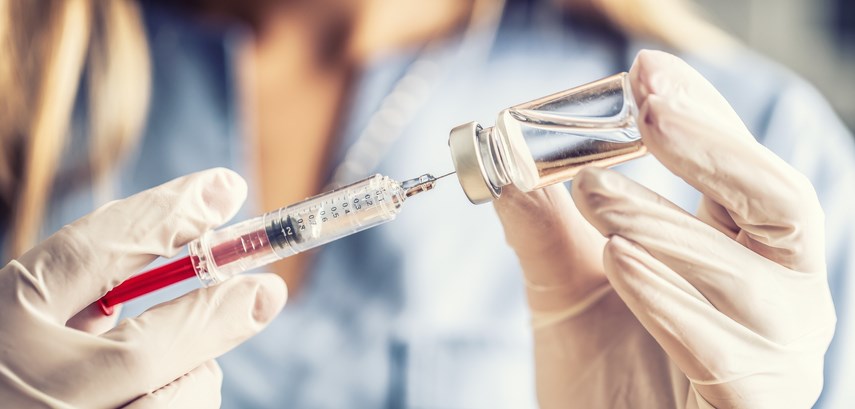The God’s Lake First Nation chief says that improperly stored COVID-19 vaccines were given to some members and that teenagers received third doses before members of that age group were eligible to get boosters.
The 26 doses were administered between Dec. 19 and Jan. 9, said Chief Hubert Watt, but the First Nation was not informed of the errors until Feb. 4.
Because of the improper storage, the vaccines are thought to have become unviable.
“As leaders, we have worked diligently to promote uptake of the COVID-19 vaccine to First Nations citizens,” Watt said in a Feb. 11 press release. “It takes time for some people to feel comfortable to receive a vaccine. It is my hope this news does not increase hesitancy in people who are still thinking about getting vaccinated.”
The doses were administered by nurses hired by the First Nations and Inuit Health Branch (FNIHB) of Indigenous Services Canada.
“Moving forward, I urge our federal partners to demonstrate a high level of care in their duties of providing comprehensive, reliable, and safe health care to First Nations,” Watt said.
Indigenous Services Canada said the improper storage was discovered the week of Jan. 17 and that the shipment received from the province was mislabelled by the distributor, which led to the incorrect storage.
No adverse reactions should result from the incorrect storage, the department said, though the manufacturer informed them that doses stored in the freezer for more than 20 days may be less effective. People who received the improperly stored doses will be offered an additional dose eight weeks after their last one.
Indigenous Services Canada sent a team of health professionals to God’s Lake First Nation on Feb. 8 to met with impacted people and discuss options for the next steps. A doctor was also made available to go on community radio to explain what happened and answer questions.
A review of how the mix-up occurred is being conducted and Indigenous Services Canada said it has put mechanisms in place to prevent any similar incidents in the future. The department also determined that God’s Lake First Nation was the only place in Canada where such a storage incident occurred.
“We can confirm that no other ISC-operated nursing station has encountered any such inconsistencies,” said the department. “We sincerely apologize for any inconvenience this situation may have caused, as well as for any impacts it may have on vaccine confidence and uptake in God’s Lake First Nation community, or in any other Indigenous community across Canada. Rest assured that we work diligently to ensure that vaccine distribution abides by the highest standards. We will continue to work with God’s Lake First Nation to address any concerns their chief, council and members may have with regards to the situation.”
Indigenous Services Minister Patty Hajdu also issued a statement about the incident.
“It is deeply concerning to learn of vaccines administered in God’s Lake First Nation that may have been improperly labelled or stored that would have limited their effectiveness and cause concern to those who received them,” she said. “Indigenous Services Canada is thoroughly investigating the matter with the community, the province, and all partners involved in vaccine administration and supports are being made available to those were affected. My office will continue to monitor the situation closely.”
Garrison Settee, grand chief of Manitoba Keewatinowi Okimakanak, a political advocacy organization that represents God’s Lake First Nation and other Northern Manitoba First Nations, said it is concerning that vaccine storage guidelines were not followed.
“I stand with the request from God’s Lake First Nation leadership to the First Nations and Inuit Health Branch that they move forward with a diligent approach of providing reliable and safe health care services for First Nations citizens,” Settee said.
People aged 12 to 17 were not deemed eligible for third doses of vaccine in Manitoba until last week.
“Oversight and monitoring of the vaccine distribution and storage is the responsibility of FNIHB and the province,” said Grand Chief Arlen Dumas of the Assembly of Manitoba Chiefs, which speaks for First Nations in the province. “Their process in this instance failed. First Nations need to have a direct say on these processes to ensure accuracy. I commend chief and council for moving quickly to ensure the safety of their citizens.”


